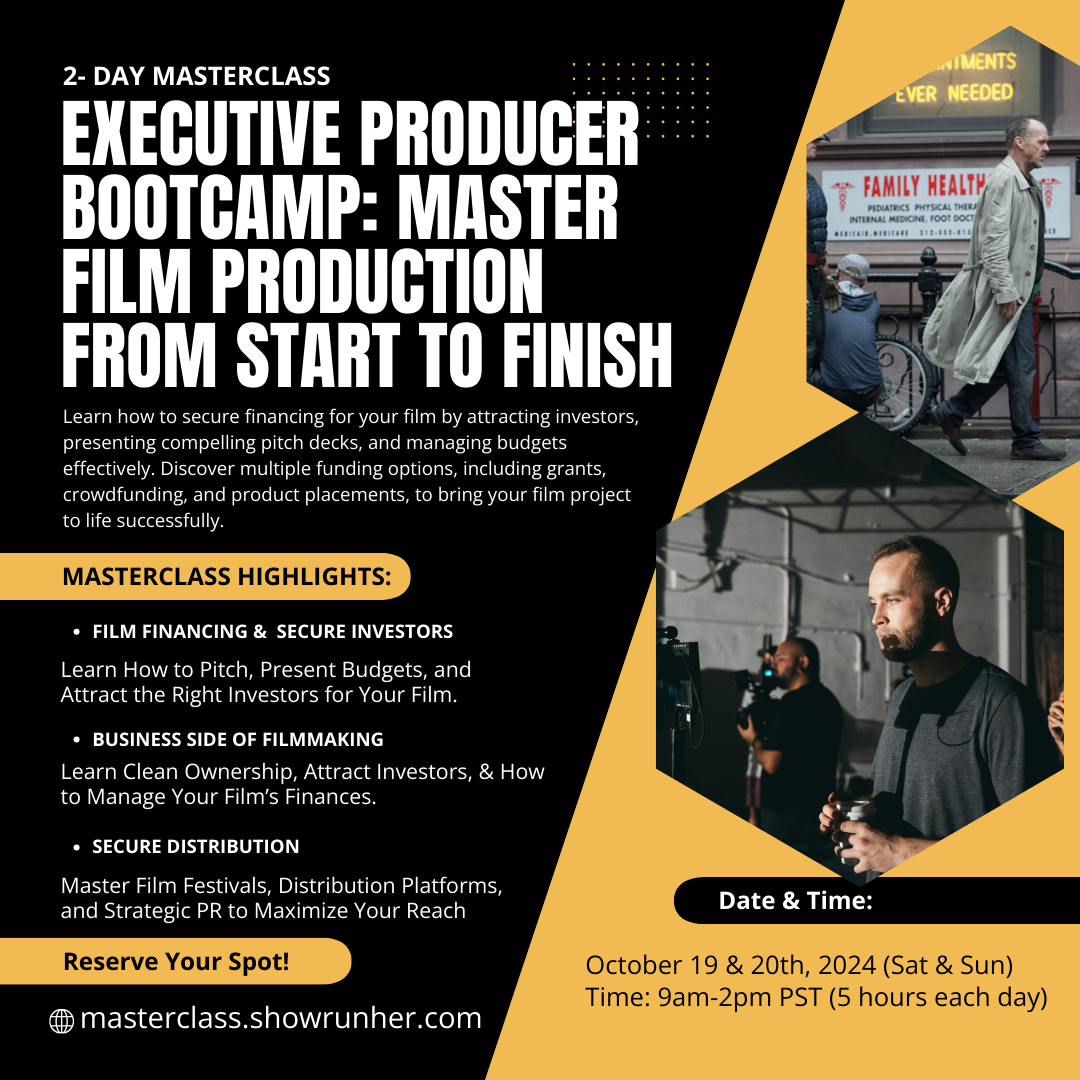When deciding on your next filmmaking venture, it’s essential to weigh the options between diving into the short film and festival circuit or embarking on the creation of a feature film aimed at generating revenue. Each path offers distinct advantages and challenges, so understanding these can help you align your project with your career goals, budget, and creative aspirations.
Short Film: The Festival World
Pros:
- Creative Showcase: Short films provide a platform to showcase your creativity and directorial skills in a concise format. They are often used to explore unique concepts without the extended commitment a feature demands.
- Networking Opportunities: Participating in film festivals can significantly expand your network. These events are ideal for meeting industry peers, agents, and potential collaborators who can play pivotal roles in advancing your career.
- Lower Costs: Generally, short films require less budget due to their limited scope and duration. This makes them accessible for filmmakers who are just starting out or don’t have access to substantial funding.
- Grant Availability: Many grants are specifically tailored for short films, providing financial support that can cover production costs and sometimes post-production.
Cons:
- Limited Commercial Viability: Short films rarely generate direct revenue. The primary returns are in reputation building and network expansion, not financial gain.
- Festival Expenses: While film festivals are great for exposure, attending them can be costly. You’ll need to budget for submission fees, travel, accommodation, and marketing materials.
- Time Investment: The festival circuit can span two to three years of promoting and touring with your film, which can delay your next projects.
Cost Considerations: Producing a short film can vary widely in cost, typically ranging from $5,000 to $50,000, depending on the production scale. The travel and submission to a decent number of festivals might add another $2,000 to $10,000 to your budget.
Feature Film: The Path to Monetization
Pros:
- Higher Revenue Potential: Feature films have a broader market for distribution, including theatrical releases, streaming platforms, and TV broadcasts, allowing for multiple revenue streams.
- Product Placements: With more extensive content, there’s the potential to integrate product placements, which can provide significant funding and reduce the net production cost.
- Industry Credibility: Completing a feature film can significantly boost your credibility as a filmmaker, opening doors to bigger projects and funding opportunities.
Cons:
- Higher Initial Costs: Features demand a more substantial budget, often stretching into hundreds of thousands or even millions. This includes high costs for talent, crew, and post-production.
- Distribution Challenges: While platforms like Filmhub offer opportunities to self-distribute and monetize your film, navigating these platforms requires a good understanding of marketing and the competitive landscape.
- Longer Commitment: Features take a longer time to develop, produce, and market, which can demand a multi-year commitment before seeing any return on investment.
Cost Considerations: The production costs for a feature film can vary dramatically based on the script, locations, and production values but typically start around $100,000 for ultra-low-budget productions. Utilizing platforms like Filmhub for distribution means you can potentially avoid traditional distributor fees, keeping more of the revenue your film generates. However, self-distribution also means you are responsible for marketing costs, which can add thousands to your budget.
Decision Making: Short Film or Feature Film?
- Career Goals: If you’re building a portfolio or seeking creative expression, short films might be the way to go. If you’re looking to establish a sustainable career or explore commercial filmmaking, consider a feature film.
- Budget: Assess your available funds and funding options. A short film might be more feasible if you have limited resources but can apply for grants. A feature film will require more capital but offers more avenues for return on investment.
- Timeline and Commitment: Consider how much time you can dedicate to a project. If you prefer quick projects and faster results, short films are ideal. If you are ready for a longer-term investment, go for a feature.
Helping You Decide
- What are your primary goals for this project?
- Suggestion: If you aim to explore new ideas or techniques with minimal risk, a short film might be best. However, if your goal is to make a significant impact or enter more mainstream markets, consider a feature film.
- What is your current budget and funding potential?
- Suggestion: Limited budget but still want significant creative expression? A short film can be more cost-effective and still offer substantial creative satisfaction. If you have access to more substantial funds or investors, a feature film might be a better investment.
- How much time can you dedicate to this project?
- Suggestion: If your schedule allows only for short-term commitments, a short film is advisable. For those who can afford a long-term dedication and want deeper engagement, a feature film offers a more extensive project scope.
- What is your experience level in the film industry?
- Suggestion: Emerging filmmakers should consider starting with a short film to build a portfolio and gain experience. More seasoned filmmakers might leverage their skills and networks by directing a feature film.
- What kind of network and support system do you have?
- Suggestion: If you’re still building your industry connections, a short film can provide a manageable platform to network and collaborate. With a robust network, a feature film could be more fruitful as it may open doors to bigger opportunities and collaborations.
- How do you plan to distribute your film?
- Suggestion: For those looking to quickly build a reputation at festivals and gain feedback, a short film is ideal. If you seek broader distribution, ongoing revenue, and are ready to navigate the complexities of the market, a feature film can be distributed through channels like Filmhub to maximize reach and earnings.
- What is your ultimate aspiration as a filmmaker?
- Suggestion: Filmmakers aiming to quickly make a name for themselves or who enjoy rapid project turnover might prefer short films. Those aiming for a full-time filmmaking career with aspirations of commercial success might find more advantages in pursuing feature films.
- What kind of impact do you want your work to have?
- Suggestion: If the goal is to influence the art of filmmaking or explore personal themes in a concentrated format, a short film can be very effective. For broader societal impact or more substantial storytelling that requires more depth, a feature film provides the necessary scope.
Ultimately, the choice between making a short film or a feature should align with where you are in your career, what you hope to achieve, and how much time, money, and effort you are willing to invest. Each path offers unique opportunities and challenges, so choose the one that best fits your immediate and long-term filmmaking goals.
Need help figuring it out? You don’t have to navigate this decision alone. You can always book a 1-on-1 session with me to discuss your goals and explore the best path for your next film project. Let’s make your filmmaking journey a success together!








